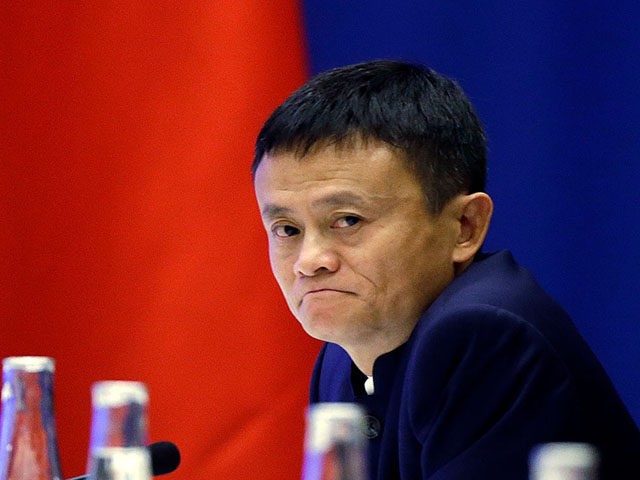Chinese regulators hit e-commerce giant Alibaba with a staggering $2.78 billion fine for alleged antitrust violations Saturday, seizing about four percent of the company’s annual revenue with the largest corporate penalty the Chinese government has ever assessed.
Alibaba executives took pains to reassure investors the company would survive and fully cooperate with regulators, and also to warn other tech giants they could be targeted next.
China’s State Administration for Market Regulation (SAMR) accused Alibaba of abusing its dominant position in e-commerce to punish clients who sold their goods on rival platforms, a practice known in China as “choose one out of two.”
Other firms have been accused of using similar practices to leverage their market power against their own clients, as Alibaba reminded its own investors, global financial media, and other tech companies in an investor call Monday.
Alibaba Executive Vice Chairman Joe Tsai said he was not aware of any other active antitrust investigations on a similar scale by SAMR, but advised his peers to remember the Chinese government will be keeping a close eye on their business practices.
“We’re happy to get the matter behind us, but the tendency is that regulators will be keen to look at some of the areas where you might have unfair competition,” said Tsai, who strove to portray Alibaba’s investigation and huge penalties as a positive learning experience.
Alibaba CEO Daniel Zhang told investors the company does not “rely on exclusivity to retain our merchants,” so its bottom line should not be heavily damaged by the changes in operations enforced by SAMR.
Zhang said Alibaba would rebound from the antitrust action by improving its services to merchants, reducing their costs for using the platform, and heavily investing in new support initiatives. He said the cash-flush corporation could afford to make such investments, and had been reassured by SAMR that its core business model was sound.
“The penalty issued today served to alert and catalyze companies like ours. It reflects the regulators’ thoughtful and normative expectations toward our industry’s development. It is an important action to safeguard fair market competition and quality development of internet platform economies,” Alibaba said in a corporate statement.
Alibaba shares were up about six percent on Monday, as investors were relieved to learn SAMR did not intend to break the company up or force dramatic changes to its business model, and reassured to know Alibaba could afford to pay even the enormous fine leveled against it. The company’s profitability is expected to decline as a result of the changes demanded by SAMR, but not catastrophically.
The Wall Street Journal (WSJ) speculated Beijing is “reluctant to come down too severely on Alibaba, a pillar of the Chinese tech sector that is immensely popular among consumers,” but also wanted the company to “disassociate” itself more firmly from founder Jack Ma, who fell into severe disfavor with the Chinese Communist Party after publicly criticizing its regulatory practices last October.
Hu Xijin, editor-in-chief of China’s state-run Global Times, suggested other tech giants should learn from Alibaba’s example and curb their ambitions, lest they receive a dose of “rectification” they could not endure as easily as the leading e-commerce corporation:
The legal concept in our society is still not strong enough in general. When a new economic sphere is opened up, there are often notions that the bold will succeed while the timid will starve, and that the laws do not punish numerous offenders. These concepts usually leads to rectification.
I sincerely hope that our economic order will become more stable, so that the massive economic activities of a certain period of time will not deviate from the basic framework of the law from the very beginning.
This bit of editorial advice is consistent with the feeling among foreign analysts that Alibaba was slammed with such a huge fine as a warning to other rambunctious Chinese entrepreneurs who could not roll with a two-billion-dollar punch as easily as Alibaba.

COMMENTS
Please let us know if you're having issues with commenting.